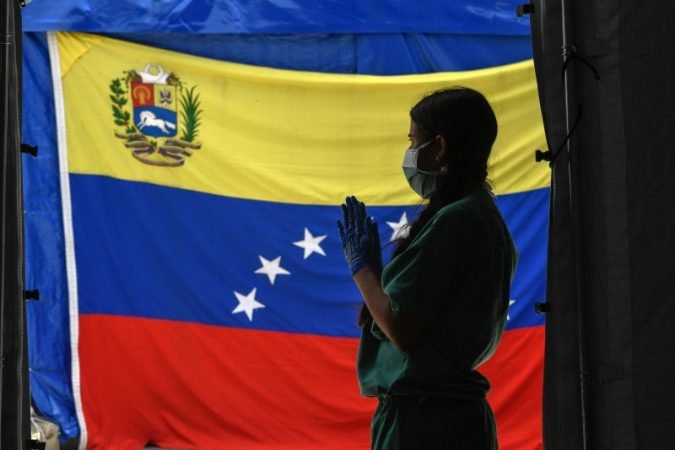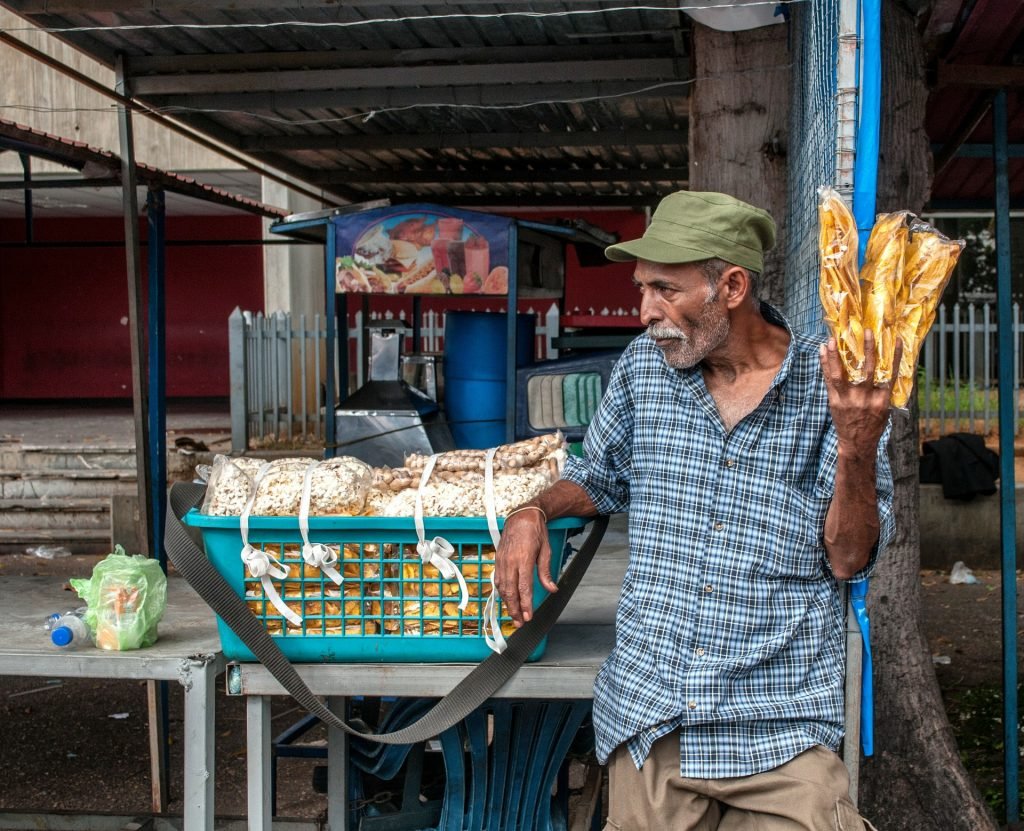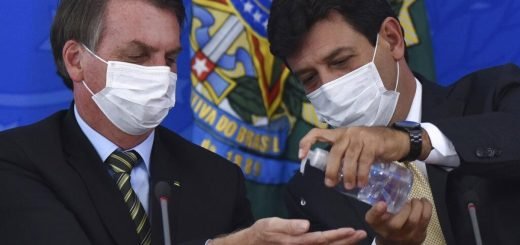Venezuela’s uncertainty in battling the COVID-19 – Moving towards a systemic failure

Venezuela, a once prosperous nation succumbed to financial owes since 2014 due to its structural economic mismanagement despite possessing the world’s largest crude oil reserves. Overspending, a non-diversified economy and plummeting international oil prices coupled with the demise of Hugo Chávez paved a way for a massive economic crisis to unfold in Venezuela. Current President Maduro’s ineptness in handling the crisis, facing opposition from Juan Guaidó and mounting pressure from the United States has made matters worse. Adding to the economic crisis is the feature of mass emigration of Venezuelans fleeing poverty. Approximately 4.5 million people have fled the country in the aftermath of the economic crisis with the group of Colombia, Peru and Ecuador and Chile taking in most of the refugees. With 53, 289 cases in total, Venezuela has seen a significant share of the infection but the country’s economic issues has made the problem even gigantic.
Covid-19 and Venezuela’s never ending problems
The current Covid-19 crisis has exacerbated Venezuela’s troubles even more with reduced crude oil production, U.S. sanctions, increasing poverty levels and falling revenues. For instance in 2019 Venezuela generated U.S $25 billion through oil exports, it managed only U.S. $ 8 billion this year due to falling production, and reduced access to international markets. Venezuela’s non-diversified economy also does not aid in revenue generation and rationing in terms of food and basic commodities complicates the situation. The fact that Venezuela is unable to import fuel has resulted in a complete standstill with crops rotting, transportation paralysed and regular riots in the cities. With the last of the oil extraction stopping in August, the country has plunged into a chaos. While around 64.8 percent of Venezuelans experience multidimensional poverty, the blame game between the Maduro regime and the United States continue.

While the situation was terrible even before the outbreak of the pandemic, it has only worsened especially for those who migrated to other Latin American states for greener pastures. For instance in Colombia, which houses around 1.5 million Venezuelan refugees most of them worked in low-paying informal jobs which now leaves them vulnerable due to the lockdown and social distancing rules. Like in any other part of the world, the worst hit are those who depend on people to people contact for economic purposes.
The long march back home
While the unfolding economic crisis since 2014 pushed many Venezuelans out into other countries, the Covid-19 pandemic has made them turn back to their homeland for security and opportunities. The pandemic has highlighted that economically vulnerable groups are more susceptible to hardships. While many have already made it home adding to the burgeoning numbers of people facing difficulties, some are still sceptical about returning. For them, negotiating with drug smugglers and illegal agents is far worse than living on the streets. Like Colombia, many other states are particularly worried about the Venezuelan immigrants who are literally on the streets without a home and access to work and basic healthcare but as the humanitarian crisis unfolds these governments are in a dilemma regarding their repatriation and rehabilitation.
However, the condition back home offers anything less than lucrative, with a falling healthcare system, a rise in cases, and the dilemma to open up businesses or maintain strict lockdown rules. Experts warn, the while the rest of Latin America will face a terrible economic slowdown unlike anywhere in the world, Venezuela in particular will take the worst hit due to its already fragile economic system. However, the story of reverse migration offers a different perspective. While the entire region is reeling under the Covid-19 pandemic, Venezuelan migrants are often discriminated in the host nations despite repeated attempts by international agencies to provide them with adequate healthcare. From aged people to pregnant women, the vulnerability is not limited to any one particular group. On the other hand, those attempting to return to Venezuela would not receive the best of healthcare and job opportunities either. Venezuelan hospitals are severely understaffed and are not well-equipped to handle the pandemic. In addition to that they suffer from lack of electricity, medicines and even basic things such as running water and ambulances.

The Maduro regime is defensive about its handling of the crisis, and on the contrary blames the rising influx of homebound Venezuelans for adding to the troubles. Critics claim that instead of beefing up its fragile healthcare the Maduro regime is targeting homebound migrants, blaming them for causing a spike in cases. The risk associated with the return of migrants is not only a spike in cases, but also the ill-prepared measures taken by the regime to tackle the crisis. While the situation in Venezuela is grim, charges have been traded between the Maduro administration and Colombian President Ivan Duque with Venezuela accusing its neighbour of lax border controls and deliberately allowing the return of refugees without any screening. Unfortunately, those who are left stranded have no option but to return and thus face various dangers on the way back home. Before the pandemic struck Latin America, many Venezuelans inhabiting the border regions would transit to and fro from Colombia and other neighbouring states in order to purchase essential items. As of now, the border agencies do not allow these desperate Venezuelans to exploit the same arrangement any further.
The situation is even more complicated with a war of words between the Colombian and the Venezuelan government over the return of migrants. While the Maduro administration has limited the return to around a thousand migrants every week, the other neighbouring states claim that they have no option but to compel them to return. While concerted efforts on combatting the pandemic is on the cards, nationalist sentiments are on the rise in view of shortage of resources and relief and at this juncture, these unfortunate Venezuelan migrants suddenly seem to be unwanted people in the region. However, the Colombian and other neighbour states and their border authorities are not wrong in calling the refugee crisis as a potential powder keg. They believe that these same migrants who are now desperate to return to their native country may again attempt to return to these states owing to the pathetic condition in Venezuela.
Bribery at the border regions is another issue that has cropped up as desperate migrants attempt to return home. For as much as U.S. $ 150 any migrant can enter his native country without getting tested. Not only can this risk in the increase of infections, but partly the Maduro administration has failed in forming a coherent policy with regards to testing, isolation and quarantine facilities. Unfortunately, the border regions are congested and with rampant corruption the entire region is at a risk of being infected on a grand scale.
A grand collapse
Venezuela is a grim reminder of how a once prosperous state can quickly turn into a warzone due to financial and political mismanagement. While self-declared President Juan Guaidó and President Maduro exchanged words of accusations, the recent agreement between both the warring sides to jointly fight the pandemic did bring some relief to the beleaguered nation. This exhibited the tender political situation in Venezuela where both the factions saw the pandemic as a weapon to dislodge one another.

While the Maduro administration faced questions regarding the handling of the crisis, allegations were made that it had fudged the numbers of cases and deaths with little testing done in order to obfuscate the data. Its unpreparedness and ineptness in handling the crisis has created a scene of chaos in the country with citizens unable to access basic healthcare. Ranking 180 out of 195 in terms of healthcare and the mass emigration of healthcare workers coupled with virtually dysfunctional hospitals have created the perfect ground for a total systemic collapse. The situation in terms of healthcare is so grim that 31 percent of the hospitals lacked potable water, 57 percent do not have access to gloves, 61 percent lack face masks and 90 percent do not have adequate alcohol sanitising gel. Unfortunately, the shortage of fuel results in delayed response to emergency situations and the lack of basic equipment means that fighting the pandemic will be the toughest challenge for the Maduro administration.
Although the government was quick to impose a nationwide lockdown in order to stop the spread of the infection, citizens lament that while much has been said, little has been done to prepare the state for such a crisis. Far from the infection, fear of lack of access to food and other basic amenities haunt the citizens. With a 40 percent workforce that relies on the informal sector for earnings the lockdown meant lack of access to income and hence a terrible food crisis. Added to it, Trump’s constant tirade against the Venezuelan government isn’t helping either while the administration’s silencing of the opposition only complicates the situation even more.
The Maduro administration needs to be more transparent in terms of testing and allocating precious resources to combat the pandemic, additionally it needs to collaborate with international agencies on a larger scale. Also the Trump administration should ease on restrictions and sanctions keeping the political tussle aside. While it is noteworthy that the regime and the opposition in Venezuela are working together, a long term solution should be on the cards to alleviate Venezuela out of this horrendous predicament.



















